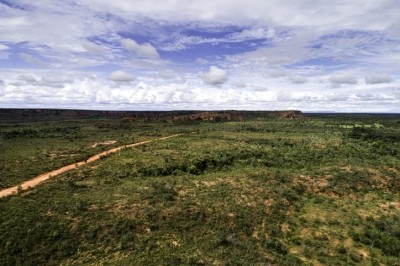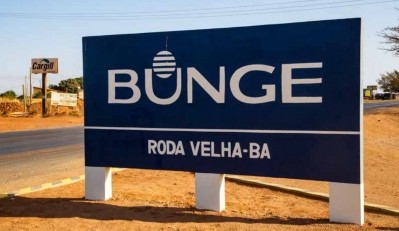Industry and campaigners see positives in amendments to EU anti-deforestation law

The new report for the EU's Committee on the Environment, Public Health and Food Safety (ENVI) sees suggested amendments to the EU's regulatory proposal.
Crucially, Hansen's publication advises expanding the range of landscapes under the scope of the regulation to include 'naturally generated forests' or 'other wooded land', such as savannahs, and tropical woodlands. That revision was one that had been strongly urged by multiple researchers and NGOs in the sustainability field.
Other key changes include the proposed addition of natural rubber and processed beef to the list of targeted commodities, which include soy and palm oil, among others.
"We're really pleased to see Rapporteur Hansen's suggested inclusion of rubber in the EU deforestation regulation, an expanded definition of the landscapes covered to include Brazil’s Cerrado and other ecosystems and tropical woodlands, clear due diligence requirements to respect indigenous peoples and tenure rights of local communities, as well as criminal penalties for repeat offenders,” said Alex Wijeratna, campaign director, at US based not-for-profit group, Mighty Earth.
Greenpeace was less positive. In a social media post, the organization said Hansen's report “comes nowhere near to ending the EU's complicity in nature destruction and human rights abuse – and is a big step backwards compared to what the EU Parliament demanded in 2020. The Parliament must make serious improvements.”
Inclusion of deforestation reduction goal
FEDIOL, which represents the interests of EU oilseed crushers and the vegetable oil sector, and which deemed much of the original EU Commission legislative draft as “not workable”, has identified several positive aspects within the new report.
“MEP Hansen has made improvements to the EU Commission’s proposal, notably the inclusion of the EU goal of contributing to a reduction in global deforestation, which, in our view, is a crucial element that was missing in the original draft,” Nathalie Lecocq, director general, FEDIOL, told FeedNavigator.
The revised report, she continued, seeks to ensure deforestation-free supply chains while having a positive impact on achieving deforestation reduction: “To facilitate this, the draft report includes engagement with producing countries to remove legal obstacles to smallholders’ compliance with the regulation and encourages engagement with smallholders to avoid excluding them from EU supply chains. This is important, as the only way to prevent deforestation is to maintain a positive and constructive engagement with producers on the ground, who should be rewarded for not cutting down their forests.”
The FEDIOL lead also noted that the proposed traceability to production area, which includes a plot of land, farm, plantation, cooperative or village, will facilitate the compliance of smallholders with the requirements of the regulation, thereby not excluding them unnecessarily.
“Traceability to area instead of plot will have a greater impact on achieving deforestation reduction on the ground as it will prevent exclusion of smallholders but also allow for previous collective programs to maintain their deforestation-free commitments. We consider positive the intended assessment on the regulation’s impact on smallholders and local communities, as they risk being the most affected.”
Removal of high-risk category
Regarding the country benchmarking, MEP Hansen’s removal of the high-risk category seems to be a step in the right direction, added Lecocq. “Incentivising countries to become low risk is less stigmatising than putting countries in a high-risk category, but this approach requires some further assessment.”
FEDIOL, she said, does not favour any kind of mandated differentiated treatment that does not stem from operators’ own risk assessments.
“The high-risk status would likely lead to companies being deterred from maintaining supply chains from high-risk countries, which are most in need of support and transformation. It would also punish producers that have already undertaken efforts and investments to ensure deforestation-free production in such countries. While removing the high-risk category may remove the counterproductive stigma and deterrence, we are still wary of a potentially similar effect emanating from countries not being in the low-risk category. We would therefore still advocate for treating all countries in the same way and focusing on the compliance of actors in the supply chain.”
Another aspect of the new report the protein meal trade group welcomed was its recognition of critical differences between the targeted commodity sectors.
“MEP Hansen’s inclusion of guidelines laying down specific rules on due diligence requirements, traceability tools and liability rules in the supply chain for the various commodities is acknowledging these differences. While the proposed regulation stems from the main learnings of the timber regulation, all commodities (i.e. liquid, beans, livestock, etc.) and related supply chains do not operate in the same manner and can, therefore, not comply smoothly and efficiently with a one-size-fits-all approach.”
Overall, said Lecocq, MEP Hansen’s report is ambitious while seeking to minimise disruptions in trade and impact on producing countries and their producers and communities.
FEFAC, the voice of the EU feed manufacturing sector, told us it fully endorses the statements made by FEDIOL on the proposed amendments.












